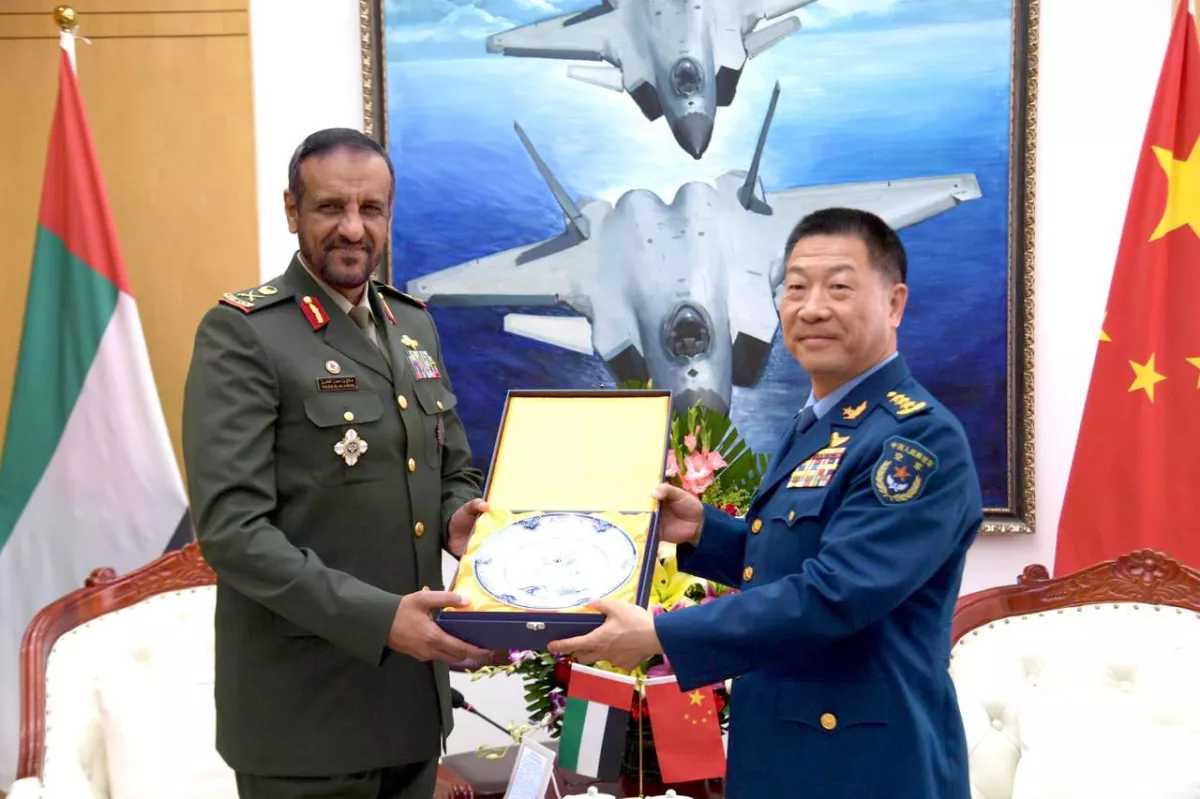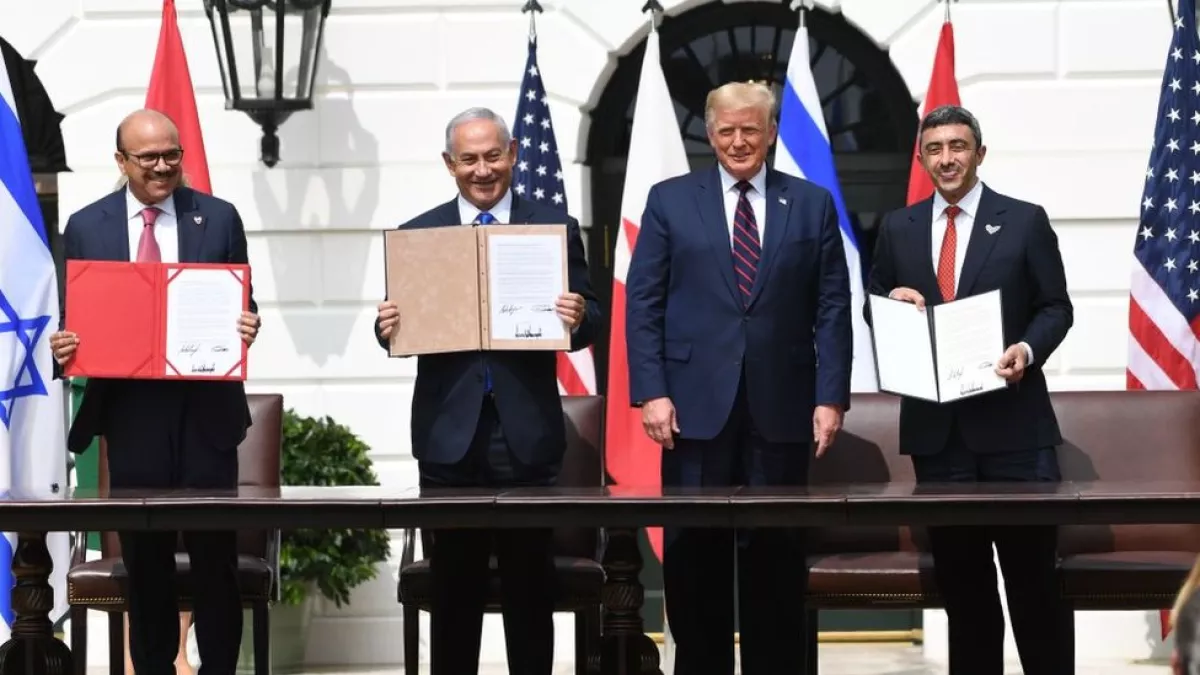Who will win Middle Eastern "Tug of War" game? An article by Foreign Policy
The world received a first glimpse into a “new” Middle East, anchored around connectivity, wealth, business, and technology instead of ideology, conflict, and confrontation in 2018. Back then an Air India Boeing 787 Dreamliner en route from New Delhi to for Tel Aviv became the first service to Israel permitted to use Saudi Arabia’s airspace. The flight was the outcome of strenuous diplomatic efforts and opened the gates of potential for an improving geopolitical climate in the region. A mere 6 years later the situation couldn't be more different.
An article by the Foreign Policy journal delves into the complexities of the region's shifting alliances and the impact of ongoing hostilities on diplomatic relations. Their analysis suggests that while there have been significant strides toward a "New" Middle East characterized by cooperation and economic integration, the persistent influence of longstanding conflicts and rivalries—the "Old" Middle East—continues to pose substantial obstacles.
The Middle East is at a crossroads, with escalating tensions between Israel and Iran, the fragile Israel-Hamas cease-fire, and the collapse of the Assad regime in Syria reshaping regional dynamics.
The November 2024 murder of Zvi Kogan, an Israeli Moldovan rabbi in Abu Dhabi, classified as a terrorist attack by Israel, has shaken perceptions of stability in Dubai and highlighted how the Israel-Hamas war has disrupted Israeli-Arab relations. This war has derailed the rapprochement that followed the Abraham Accords, the article's authors believe, when Israeli tourists flocked to Dubai as if it were a European capital.

The United Arab Emirates (UAE) has worked to promote pluralism and religious harmony by inaugurating both a synagogue and a Hindu temple. However, the article poses a larger question: did the idea of a “new” Middle East—symbolized by Dubai’s skyscrapers and Saudi Arabia’s futuristic Neom city—die with Hamas’ October 7, 2023, attack on Israel? While the UAE’s economic rise stemmed from its own policies, regional progress now depends on addressing the Palestine issue.
Many scholars, including Marwan Kabalan, argue that ignoring the Palestinian question has hindered regional progress. Some believe that Hamas' October 7 attack was designed to derail initiatives like Saudi-Israel normalization and the India-Middle East-Europe Economic Corridor (IMEC), which was announced at the 2023 G-20 summit prior to the Hamas assault on Israel. The Israel-Hamas war, which has extended into Lebanon with clashes between Israel and Hezbollah, has also led Arab states to reassess their regional policies. The Riyadh-Tehran detente, facilitated by China, and the weakening of Assad’s regime have brought the Palestinian issue back to the forefront of global discourse.
Historically, the Palestinian cause has been used as a tool for regional political maneuvering, but now, the article suggests that Palestinian self-determination is gaining renewed international attention. Meanwhile, regional powers such as the UAE and Saudi Arabia are hedging their alliances, maintaining close ties with the US while expanding partnerships with China and Russia.
In July, the UAE and China held joint military exercises in Xinjiang, despite Beijing’s repression of the Uyghur Muslim population. Satellite images showed UAE aircraft, including French-made Mirage 2000 fighters and US-made C-17 Globemasters, operating deep within China. Arab monarchies, navigating between democracy and autocracy, have leveraged Western involvement to maintain stability.

"The Middle East’s regional disorder has a different and older rulebook," the article states, noting that Western interference, whether well-intentioned or not, has failed to create lasting progress. The long-standing issue of Palestinian statehood exemplifies this. Iran, which supports Hamas and Hezbollah as part of its "Axis of Resistance" and "forward defense" strategy, has suffered Israeli assassinations of key figures. However, Iran has secured victories, such as its normalization with Saudi Arabia, which has led to reduced Houthi attacks on Saudi oil facilities.
Saudi Arabia has pivoted toward neutrality, prioritizing economic and political diversification over confrontation. Amid these shifting alliances, "the return of US President Donald Trump is the proverbial joker in the deck." While Trump may push for cease-fires and de-escalation, he is unlikely to prioritize democracy promotion or direct military intervention.
"But Trump is also what is known in Persian as a 'bazaari', meaning one who is always looking for a good deal," the authors point out.

The Arabs, Israelis, and Iran alike are well aware of his trait, which could allow Iran to remain content as a threshold nuclear state to try and box Trump in his self-prescribed title of a president who did not start any wars.
The current pause to hostilities has revived discussions about a two-state solution globally, which, as the authors believe, remains the only viable long-term resolution.
"An appetite for a new Middle East order may well provide enough motivation to resolve the obstacles created by the resurgence of the old one. The developing cease-fire between Israel and Hamas marks a moment of respite from war and an opening for the Arab states to address Palestinians’ role in the region moving forward," the article argues.
By Nazrin Sadigova








